Does NOOM really work? We take a look at the new NOOM app for weight loss and eating behavioural change to determine the pros, cons and if you should try it.
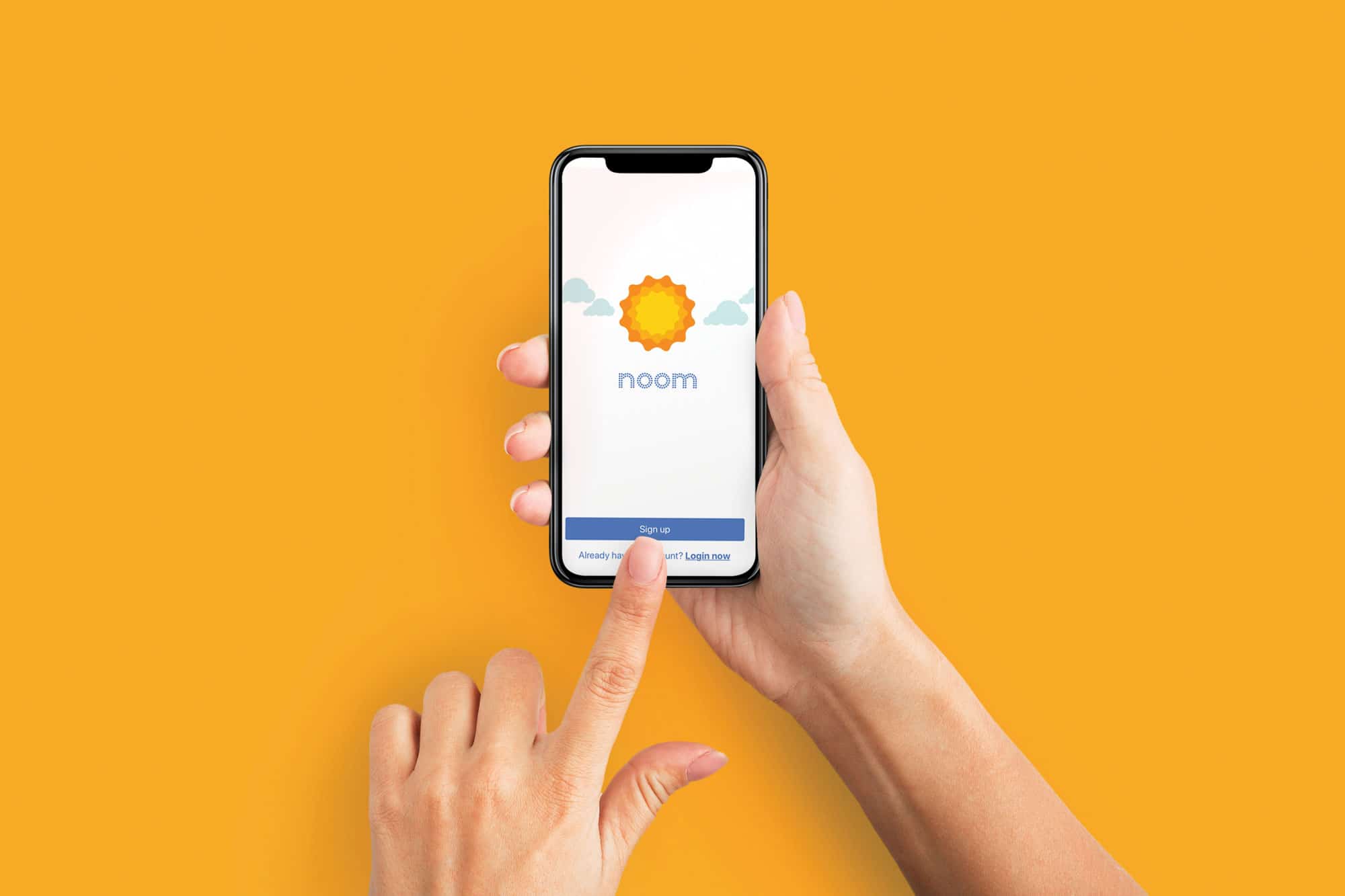
As I am sure you have seen, through the bombardment of recent social media ads (regrettably many of which have ended up on MY YouTube channel – ugh), there is a newly re-popularized weight-loss app on the scene called Noom. The app has been on the market since 2012, but only recently seems to be gaining in momentum and popularity – probably thanks to the massive marketing campaign. Noom claims to fill the gaps of so many other quick fix diets, offering long-term weight loss results through “motivation and guidance to make a true lifestyle change”. They position themselves as a “wellness program”, less so a “diet”, sneaky language that is super problematic for reasons we will discuss in more detail throughout this post. Noom’s app makes reference to several studies that seem to support their claims for sustainable weight loss, which we will delve into a little later.
But does Noom really work? I’m breaking down the pros, cons and if it’s worth trying.
Setting Up Your NOOM Account
For now, let’s start at the beginning – upon downloading the app and setting up an account the first thing it asks you is “how much weight do you want to lose?”. This isn’t all that surprising, considering that this app’s main purpose is to assist in weight loss. Moving along, the second prompt poses a concerning sliding scale where you get to pick what animal represents the weight loss speed you desire: your choices are turtle, rabbit, or cheetah. In case it needs to be said, I just want to start off with the simple fact that we are humans, not animals, and we cannot simply choose or will ourselves to lose weight at a particular speed (if we can even “will ourselves” to lose weight at all).
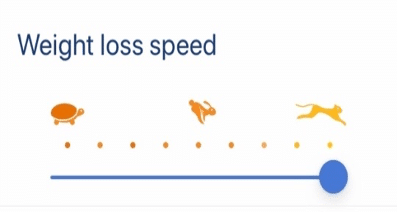
With that being said, there are aspects of the Noom platform that have proven helpful for some users; so throughout this post, I will aim to breakdown what the app offers, it’s food philosophies, as well as the benefits and drawbacks of downloading and using it. Let’s go!
What does the NOOM app provide?
The Noom weight-loss app offers a “personalized health plan” from an online (supposedly human) health coach, as well as 24/7 support and motivation from the said coach. Like similar apps, it encourages you to log your meals and exercise. Unlike other apps, each day when you open Noom, you are met with a fresh platform filled with new “articles” and quizzes designed to “test your knowledge” on things like: portion control, calorie budgeting, eating less calorically dense foods, ways to hack your sweet tooth, breaking “bad” habits, and Noom’s “colour system” (spoiler: it is a traffic light system – WW Kurbo is that you?).
By reading these daily “articles” and completing the quizzes, in combination with your personalized coaching support, the app claims to create behaviour change for sustainable weight loss. This is the whole selling point of Noom, behaviour change over restriction. In theory, this is a great plan since the research suggests that restricting calories through dieting often does more harm than good in the long run.
Now, as mentioned before, Noom positions themselves as a “wellness program”, allowing you to choose from two options: I want to “get fit for good” or “lose weight for good” when you set up your app. However, I am seriously confused by these supposedly personalized options, because regardless of which one you click you are guided through the EXACT same set of questions with prompts about weight loss. Apparently Noom views getting fit as a synonym for losing weight. *Le sigh*
Anyway, after just a short time navigating the app, I started seeing a lot of mixed messages. For example, one minute you may be quizzed on the hypothetical scenario of having 100 calories left in your caloric “budget” and are forced to choose which item would best help you feel satisfied. While a Big Mac (at 563 calories) would potentially leave you more satisfied if you were hungry, the perfectly 100 calorie portion of 1/2 fresh mango was the right answer. Surprise surprise. Meanwhile, we see the seemingly supportive, non-judgemental and “non-diety” heads up that it’s unrealistic to just eat “healthy” foods all the time. So instead, they recommend a specific breakdown for “low calorie”, “moderate calorie”, and “high calorie” foods to enjoy! Spoiler alert, dichotomizing foods like this and giving specific percentages of how much you can enjoy is just another diet rule you need to follow.
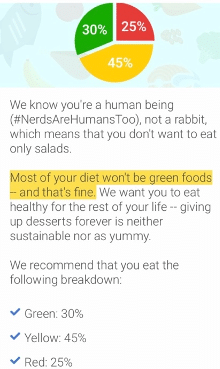
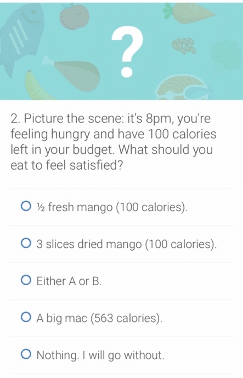
Why is NOOM supposed to work?
Does Noom really work because of the 24/7 online coaching it offers? The idea behind this is that there is immediate feedback and validation for following through with entering your meals and completing the readings/quizzes. However, through reading different users’ reviews of their experience with the app, it seems as if the jury is still out over whether or not these coaches are actually humans (or bots posing as humans). In other words, this may or may not be 2020’s diet culture version of Westworld.
Some users reported that they were left without responses from their coaches, or that their responses and messages seemed automated and not personalized for them. That can’t be a good feeling when you are paying into something with the understanding that there will be another person there for you at all times, to offer sound and sensible nutrition and diet advice.
What are the suggested foods to eat and avoid on NOOM?
Noom uses a traffic light system to categorize food, which is exactly what it sounds like: red foods “are the most calorie-dense and should be eaten less frequently and in smaller portions”, yellow foods “have more calories and/or less healthy nutrients per serving than green foods, and should be incorporated [into] your diet in moderate portions”, and lastly, green foods “are the least calorie-dense and should make up the bulk of your diet”.
Unsurprisingly, green foods include vegetables, most fruit, and whole grains; yellow foods include lean meats, legumes, and low-fat dairy products; and red foods include “red meats and desserts”, as well as full-fat dairy products, nuts, seeds, and their butter and oils.
Essentially, this system depends solely on caloric density to classify foods into their respective colours, which can be problematic if taken out of context. While I agree fully that some foods that are more nutritionally dense than others, and that balance is important for overall health, classifying foods solely by caloric density can cause potential problems.
The app does specify that no foods are “off-limits” and that the light system is just there to help with recognizing which foods are more and less calorically dense. However, it doesn’t take much of a stretch of the imagination to recognize that people could easily begin to try and avoid the “red” foods, as they can be linked to “bad” or “unhealthy” options.
When logging your “red” foods, if you go over at all, you are met with a scary red warning sign to limit your portions. Conversely, you are seemingly praised (both from the app platform and online coaches) when you are eating mostly “green” foods. In my mind, the concern with people developing the belief that avoiding the “red” foods is “good” is a strong possibility, since many of the daily readings are centered around breaking “bad” habits surrounding “junk foods” and hacking your sweet tooth with “healthy swaps”. For example, instead of eating that crème brûlée you’ve been craving, doesn’t broiling a banana sounds like an appetizing alternative? Hmm – yah, no.
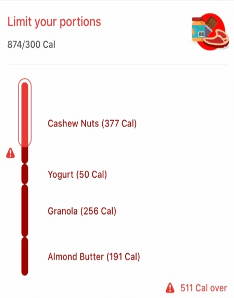
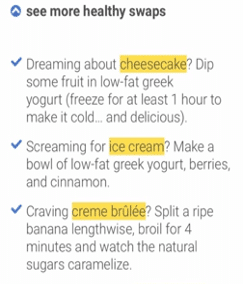
So, while Noom steps forward from other diets and weight loss apps with the premise that “no foods are off-limits”, I am left wondering if that really is the case. If so, and people find themselves feeling motivated and not triggered by the premise of these categories, then I think Noom could be a good educational tool for understanding the caloric density of different foods. But that’s about it.
Does NOOM really work for weight loss?
As mentioned before, there are several studies reviewing Noom which support the claims that using the app faithfully does result in weight loss.
One study published back in 2016 reviewed all the data inputted into the app and compared baseline weights with end weights for those users that consistently recorded their meals, exercise, and weigh-ins for 6 months. In other words, these were the hard core “successful” users. Interesting that there were over 10 million people who had downloaded the app, but only 0.36% actually used it consistently. I mean, I would quit too if it wasn’t “working” for me. But anyyyyyyway let’s look at the stats.
What they found were that 31% of the users reported less than a 5% decrease in body weight, around 24% lost 10% of their weight, and 22% lost more than 20%. That’s pretty significant, IF the weight were to be kept off. At follow up at just a year after starting the program, they only had data on half of the participants and found that just 14% were able to maintain at least a 10% body weight loss. This study is constantly cited – without the follow up data – saying that 77% of app users lose weight using the app. That sounds pretty good. What sounds not so appealing is the reality that 99% of users don’`t stick to the app for more than 6 months. So yah, I see why they sell it like they do.
The truth is, even if the weight maintenance results were really fantastic at one year, one year is not even enough time to make the claim that the app helps you lose weight and keep the weight off for “life”. We would want to see follow up at 5, 10, 15 years down the road to see how these users are doing. Also, it’s also important to note that this is all self-reported data, and when you’re being scrutinized by a seemingly REAL human on the other end of the app, wouldn’t you be motivated to fudge the numbers just a bit? It’s hard to tell if Noom really works based on this limited info.
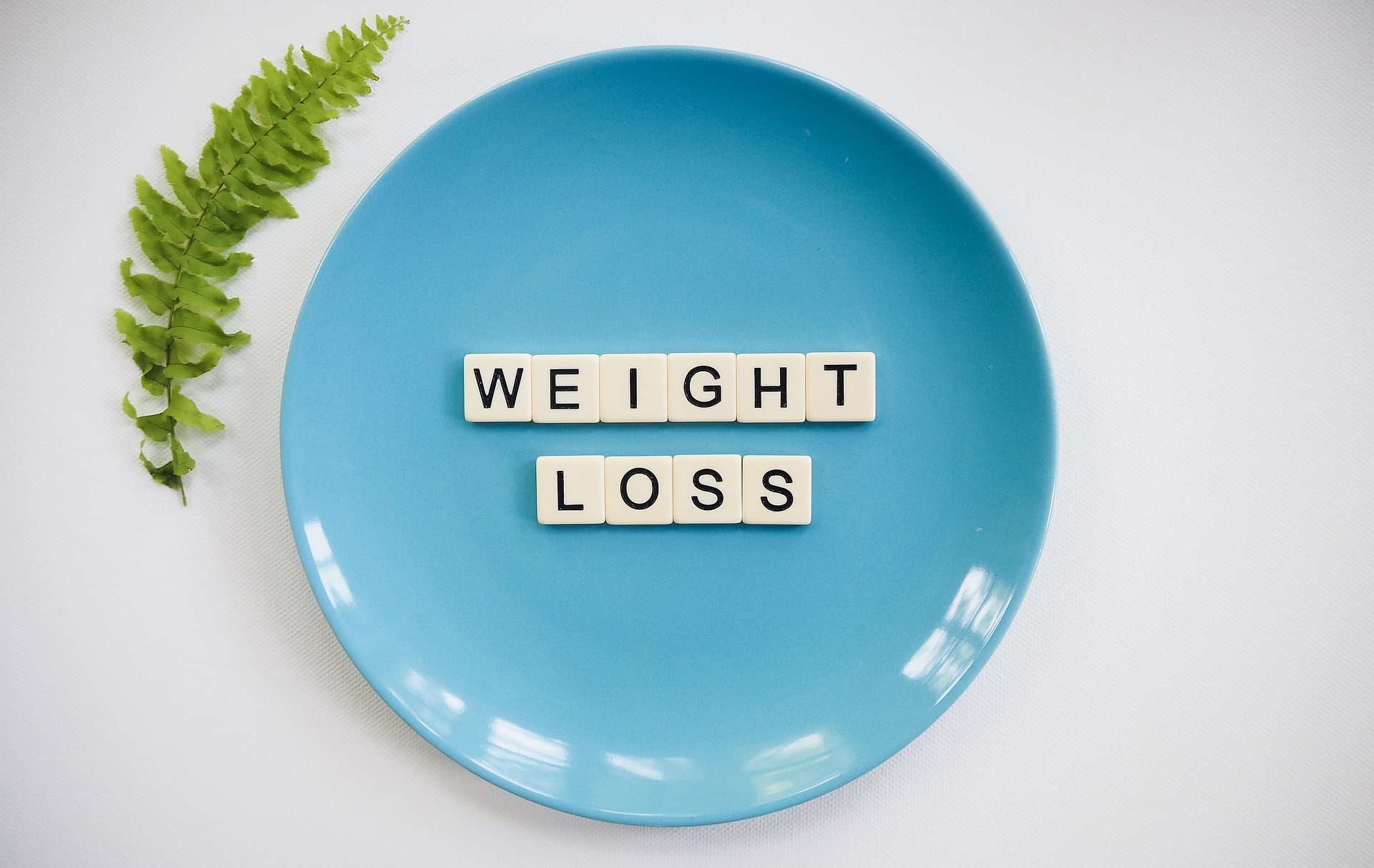
Another study that Noom references in support of their app was done on a much smaller scale. The study took place with 43 overweight and “prediabetic” participants within one office setting, though by the end of the study though only 36 participants followed through with consistent reporting on the app. This study was done with a very specific population (all participants were confirmed to be at a high risk of developing diabetes) and each was assigned a “virtual Centers for Disease Control and Prevention-recognized master’s level coach”, meaning translating the findings of this study to the generalized population may not be so realistic. This is because the average user will not be paired up with a specialized coach, and, they likely will not have the unique “motivation” of being diagnosed as “prediabetic” prior to using the app.
However, they did find that 64% of the users who completed the app’s online coaching and committed to the consistent use of the app lost over 5% of their body weight. Again, this weight reduction was only reported for the time they were actively using the app – without any follow up to verify if the weight was kept off in the long term.
Both of these studies found that when users were more engaged in actively inputting their meals and exercise regularly, their weight loss was more successful. As mentioned above, both studies did show a significant weight loss during the time the participants were using the app (but did not report if there were any long-term changes). However, both of these studies were published in 2016, and they are still the two that Noom references most often. If Noom claims to offer long-term weight loss, then shouldn’t there be updated research to prove these participants kept their weight off after they stopped using the app?
No, because this long-term data doesn’t exist. And if it did, it probably wouldn’t be that flattering to their brand. It would not be surprising though for the majority of the participants to regain their weight after the diet, as weight loss interventions typically do result in early weight loss, followed by a plateau and then progressive regain. It is also known that after periods of dieting our bodies often undergo physiological changes, including alterations in our satiety and hunger hormones, as well as our metabolic rate, all of which aim to push our bodies back to our initial pre-diet weight.
As much as many people want to believe that this is their body failing them, that simply isn’t the case. It is believed that we all have our own individual “set point”, where our bodies are most comfortable (so to speak). So, even if that number lands you higher on the scale then you may want it to – it is because your body knows where it functions best (not because it is spiting you for failing to comply to restrictive diet rules).
In a sense, our metabolisms can be somewhat of a Motherly figure; even though it may hear what you want, it actually knows what is best for you. In short, despite your valiant (and often painful) efforts for weight loss, Mother metabolism often gets the last say.
Are there benefits to the NOOM app?
All criticism aside, there are some aspects of this app that I can get behind. For example, its uses of realistic goal setting, psychological principles, and the emphasis on self-efficacy.
Encourages SMART GOALS
SMART goals are Specific, Measurable, Attainable, Realistic, and Timely. Research has shown that goals set without such a framework are less likely to be attained. Therefore, SMART goals are central to accomplishing effective and sustainable changes. While I like that the app makes use of the framework and encourages the setting of smart goals, I do worry that in practice, the app doesn’t exactly walk the talk. I will discuss this in more detail shortly, but if does, for example, allow you to make outrageous goals like losing 100 lbs in a month without flagging that hey, that’s not SMART!
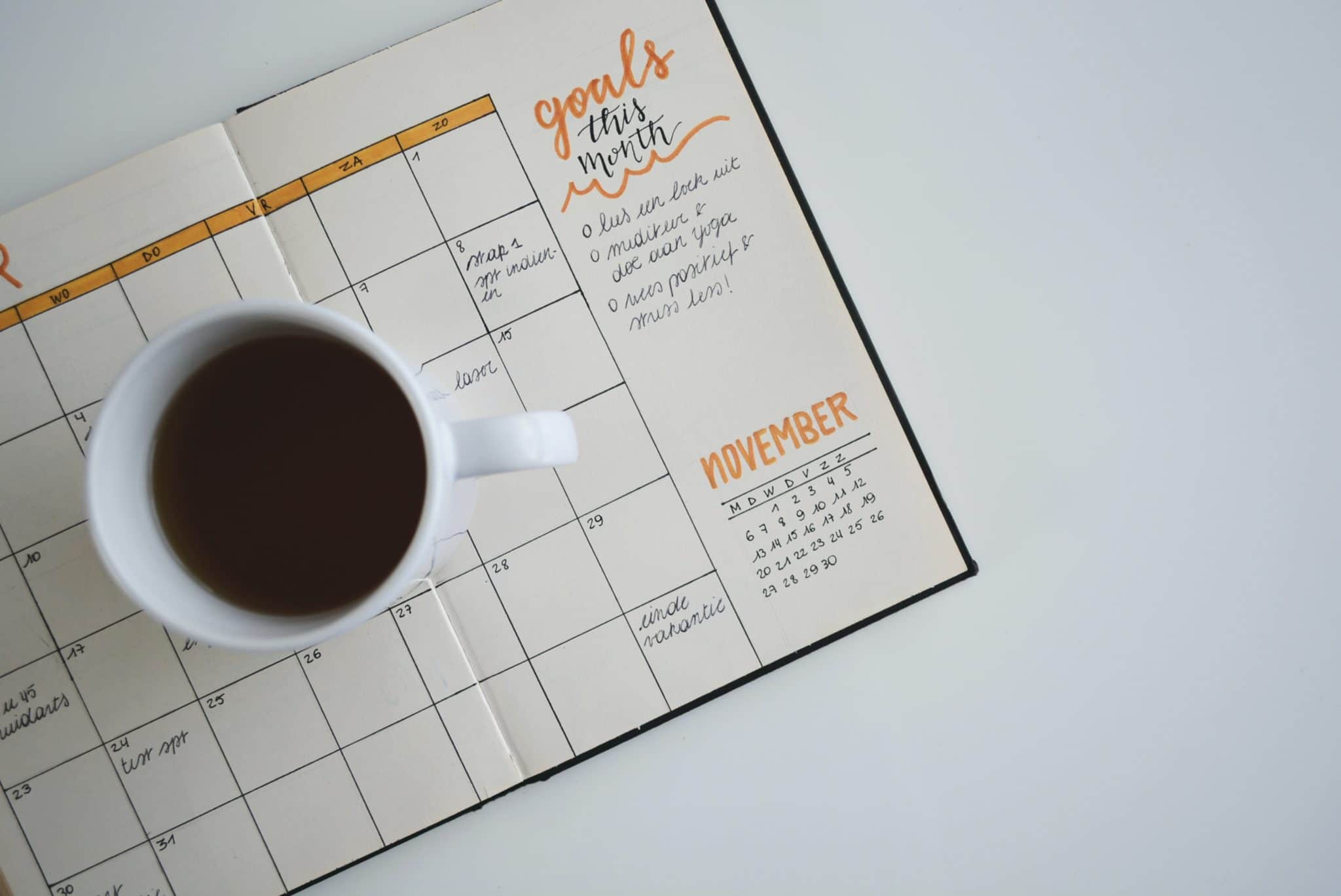
Considers Eating Psychology
This app also makes use of several aspects of psychology, such as untangling common cognitive distortions (unhealthy thinking patterns). Some of these unhealthy thinking patterns include “all or nothing thinking”, “mind-reading”, “exaggerated thinking”. All or nothing thinking refers to our tendencies to think of certain situations in extreme black-or-white categories (“I will either be perfect and succeed 100% or I will be a complete failure and give up”). Sound familiar?
Addressing these unhealthy thinking patterns can be hugely beneficial for our overall health and well-being. However, the mention of these cognitive distortions does seem more like tokenism then a real tool to help people begin to understand and alter their thought patterns. Essentially, instead of diving deep enough into these thought processes to make a real difference, they scratch the surface with basic definitions and examples of how they may play out in your diet journey. Like, cool, yah, all or nothing is definitely a problem – BUT NOW WHAT THE F DO I DO ABOUT IT?
Focuses on Self-Efficacy
Self-efficacy (the belief in our own ability to succeed) seems to be an important part of the app’s success. Developing a strong sense of self-efficacy can be highly predictive of behaviour change and motivation. Because of this, if the app really were to help its users foster a stronger self-efficacy, successful behaviour change would be more likely. However, their take of self-efficacy seems to be more of a requirement of success for the app, rather than a tool to develop it. Placing the success of one’s weight loss journey solely on their own self-efficacy is also concerning, as it is setting them up for internalized judgment if (or when) the diet fails them.
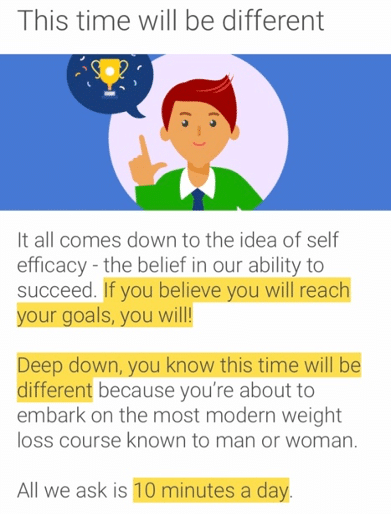
So, while I believe that the above aspects of the app could be strengths and benefits for its use – I do want to state that the mechanism for their use does not seem to be focussed on the user’s growth of a healthy relationship with food or themselves. Rather, for the overarching goal of weight loss (which may not actually be a healthy use of these tools).
Downsides of the NOOM App
It’s Still a Diet
Does Noom really work for the healthy weight loss it preaches? At the end of the day, this app is still promoting diet culture and weight loss through cutting calories. There just isn’t any way that this app can be used without implementing food rules and restrictive behaviour.
One concerning way that they do this is through food categories (the traffic light system) and food/calorie “budgeting”. As we know, restricting calories through dieting simply isn’t as cut and dry as it sounds. Our bodies adapt to these diets, by compensating for the calorie loss with changes in metabolism and hormone production, and can also trigger orthorexic tendencies as well. Because of this, as is with any diet, the costs of putting our bodies through such restriction will very likely not be worth it in the long run.
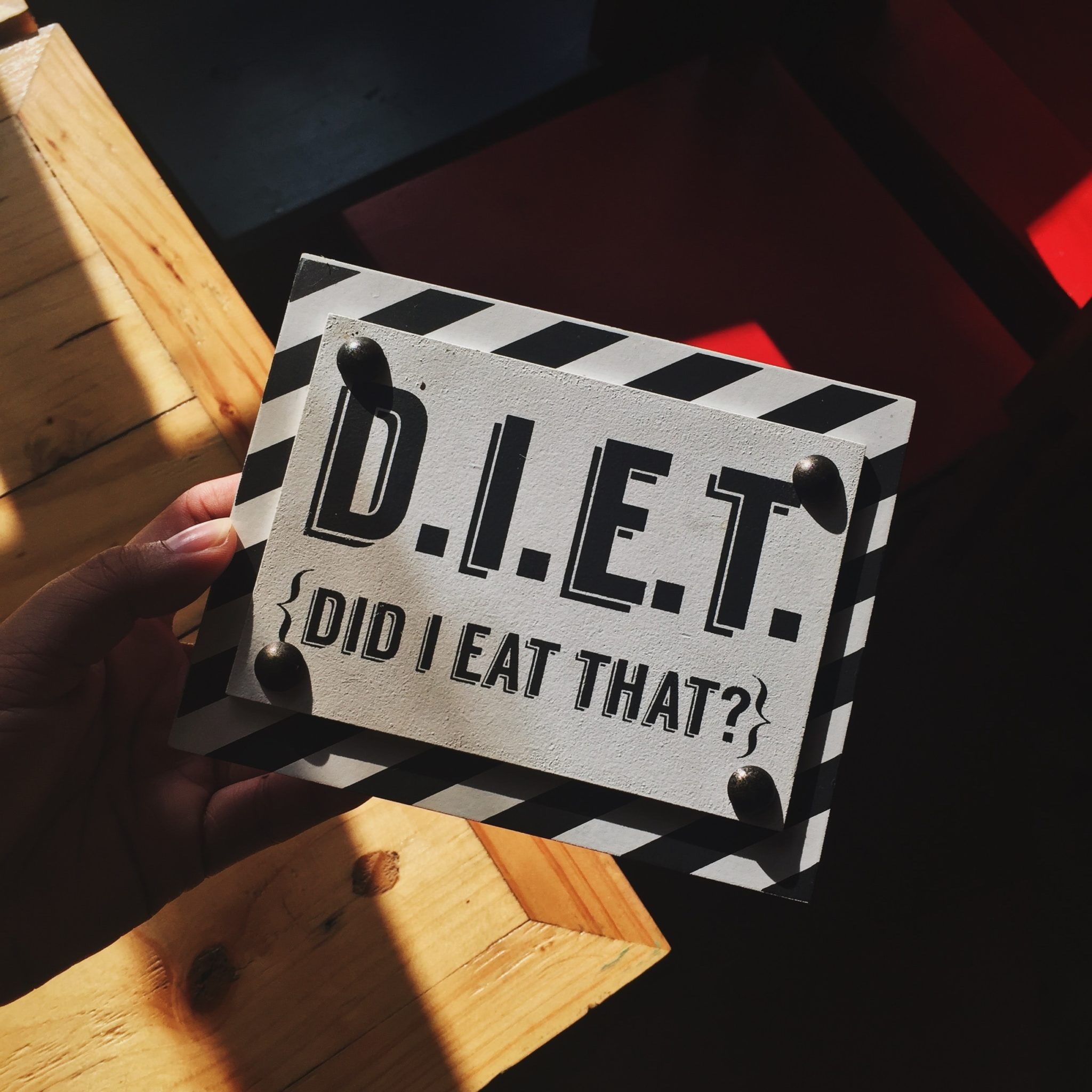
Calories are not Everything
As eluded to previously, dichotomizing foods according to their caloric density (by using the traffic light system) is also a concern. This is because it solely uses the calories that the foods provide to categorize them as “good” or “bad”, “eat” or “avoid”.
This largely overlooks the most important nutritional aspect of our foods: the micro- and macronutrients that they provide to give us energy and to keep us functioning throughout the day! Here’s an example: Noom categorizes almonds as a red food, simply because they’re higher in calories compared to fruits and vegetables. This is true! However, this is NOT a bad thing!
Almonds are packed with healthy fats to keep our brain functioning properly, protein to keep our muscles and bones strong, fibre to keep us regular and satisfied, as well as a variety of vitamins and minerals to help us maintain our overall health and a robust immune system! Avoiding almonds, or any nuts/seeds for that matter, because they are classified as a “red” food would be a huge missed opportunity for the incorporation of these healthy, and delicious, powerhouse foods!
Unqualified Coaches
Another concern with the app is the possibility of unqualified coaches giving diet advice to users. While Noom’s website does state that their coaches are all put through “Noomiversity” (whatever that means), there is no specific mention of the coaches being required to be qualified Registered Dietitians (RDs) or nutrition experts of any kind.
A lot of user reviews also mentioned feeling like their coach was not personalizing any information for them. This generalized format of all people receiving feedback from an online coach, who doesn’t seem to take the time to understand their individual needs and/or potential triggers, just doesn’t seem like something I would put my money into. Instead, finding a (human) dietitian and seeking their advice and guidance through whatever journey you are on, seems like a much safer way to go about this. Many dietitians offer virtual counselling – so if you are really set on doing this from home, you can at least have the guarantee that there is a qualified human on the other side of the line.

Doesn’t Flag for Disordered Eating
For a supposed anti-diet app, I’m shocked that there is no screening done for disordered eating. There is also a real serious potential for the app to promote the underconsumption of calories and nutrients.
For myself, I inputted my current (healthy) weight and selected my (UNattainable) goal weight to be 30 pounds less than my current. The app saw no problem with this (even telling me it was a “great goal to work towards”). I chose the cheetah as my speed for weight loss, and the app told I would meet my goal within 3 months! That would mean losing 10 pounds per month, an unhealthy and unrealistic feat.
As a result of the data I inputted, it generated my recommended intake of calories to be 1200 (this was also after indicating I had an active lifestyle). This calorie “budget” would have been far too low to feasibly consume an adequate amount of nutrients and calories to sustain my health over time.
To put this into perspective, here is a “perfect” day on Noom’s recommended 1200 calorie “budget”:
Breakfast (261 calories) – 1 small banana, ½ cup oatmeal (with water), ½ cup low fat yogurt
Morning snack (0 calories) – water
Lunch (366 calories) – 2 carrots, ½ cup brown rice, 1 tbsp soya sauce, 1 small fillet of salmon
Afternoon snack (95 calories) – 3 stalks of celery, 3 tbsp hummus
Dinner (288 calories) -1 cup whole grain pasta, 3 spears of broccoli, ½ block of tofu
Evening snack (190 calories) – 1 small apple, 1 tbsp of peanut butter
I am not sure how many people would really be able to follow such a restrictive diet for long; I know I certainly wouldn’t be able to. I am hungry just looking at that sad breakdown!
Daily Weigh-Ins

Another red flag that stood out for me is their promotion of DAILY weigh ins. Noom encourages its users to overcome their “scale anxiety” and learn to “love their scale”, which is highly concerning given the fact that research tells us to do the exact opposite.
One literature review, reviewing 20 articles, found a negative relationship between frequent weigh-ins and phycological outcomes. They found that self-esteem, body evaluation, and eating behaviours were all negatively impacted by engaging in regular self-weighing. The reason this is such a red flag for me is because Noom claims to offer its user’s the exact opposite of this – a supportive experience for healthy behaviour changes. And while they cite research of their own, it is important to note that this particular study actually concluded that “frequent self-weighing, at the very least, seems to be a good predictor of moderate weight loss” and that more research was needed. The thing is, yes, weighing in might very well increase your chances of losing weight – but at what physical and psychological cost?
Bottom Line: Does NOOM really work?
Do not be mistaken – Noom is still a diet, and if you have tried different diets in the past without achieving the results you were looking for, this will likely not be any different.
If you are truly seeking a positive behaviour change for a healthier lifestyle, there are much better (and free) ways to go about it. For example, eating plenty of fruit and vegetables, choosing quality protein sources, and choosing whole grain starches more often than refined ones.
Also, if you feel that logging your meals is an effective tool for you and you don’t see any benefit to the daily readings/quizzes – other free apps will do the trick. And if you feel drawn to the promise of a greater attention to the psychological aspects of eating and behaviour change as the Noom app promises, I would encourage you to reach out to a health professional like an dietitian, who can work with you to understand your unique emotional triggers and strategies.
All in all, if following the highlighted food rules, calorie budgets, and speaking virtually to a bot (oops, I mean health coach) doesn’t seem like the right path for you – I would not recommend Noom.
Contribution by Amber Whittemore
More Blog Posts You Might Like
- Why The WW Kurbo App for Children and Teens Will Do More Harm than Good
- Are Cheat Days OK? The Truth About Cheat Days and Weight Loss
- Dietitian Reviews Celebrity Health and Wellness Brands
- The Truth About Ozempic: A Registered Dietitian’s Perspective
In your opinion, does Noom really work or is it a bust? Let’s discuss below!
Updated on June 16th, 2024

Abbey Sharp is a Registered Dietitian (RD), regulated by the Ontario College of Dietitians. She is a mom, YouTuber, Blogger, award winning cookbook author, media coach specializing in food and nutrition influencers, and a frequent contributor to national publications like Healthline and on national broadcast TV shows.

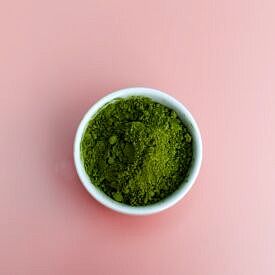



Jessica says
I used Noom a few years ago and all it did was fuel my Orthorexia. DO NOT DO IT!!! It had me on 1200 calories a day for a grown woman. Did I lose weight? Of course I did because I was literally starving myself. Was I “healthier”? NO. The damage it did to my mental health, my relationship with food and with exercise has taken me YEARS to fix. It’s so restrictive – Noom makes you afraid of peanut butter for gods sake. Not to mention daily weigh ins are SO toxic. I can’t stress enough how horrible this program is. If I could sue them for my eating disorder I would. It’s so fat phobic to just focus on weight like this rather than behaviors. Thank goodness I found an Intuitive Eating RD to work with and save me from Noom/restrictive thinking. And of course even though I’m actually healthier now I gained even more weight back because of losing those 30 lbs with Noom. All it does is keep you weight cycling because there is no way it’s sustainable.
Abbey Sharp says
Ahh I’m so sorry you went through this. I’m happy that you found a great intuitive eating dietitian to work with!
John says
Been using the app the past couple of weeks. Your post validated the most fundamental problem that I have been feeling intuitively: my goal is too aggressive and so trying to live on 1,400 calories per day has been frustrating. The coach took a week to show up and her messages appear now every couple of days or so. Therefore there really is not 24/7 support. That is a misnomer. Thanks for the advice.
Marilyn Small says
Hi John (and Abbey)!
I too tried the app, and found the bot coaches as well as the juvenile communication style to be very annoying. The traffic light system is just as you said,, Abbey,, very intimidating and thus restrictive and frustrating. When I asked my “coach” for a customized workout plan (I’m older with a lot of bone on bone arthritis and compressed vertebrae), “he” responded with a list of links outside of Noom, some that needed a paid subscription. At the monthly price I was paying, I should think they would provide better help than that, but they are just bots anyway. I cancelled Noom shortly after that.
I would not recommend Noom.
Jolene says
Oh my goodness this is so useful to me as an RD! I’ve seen the ad’s and been doubtful but never taken the time to download and play with it myself. Thanks for the info!
Abbey Sharp says
So glad its helpful!